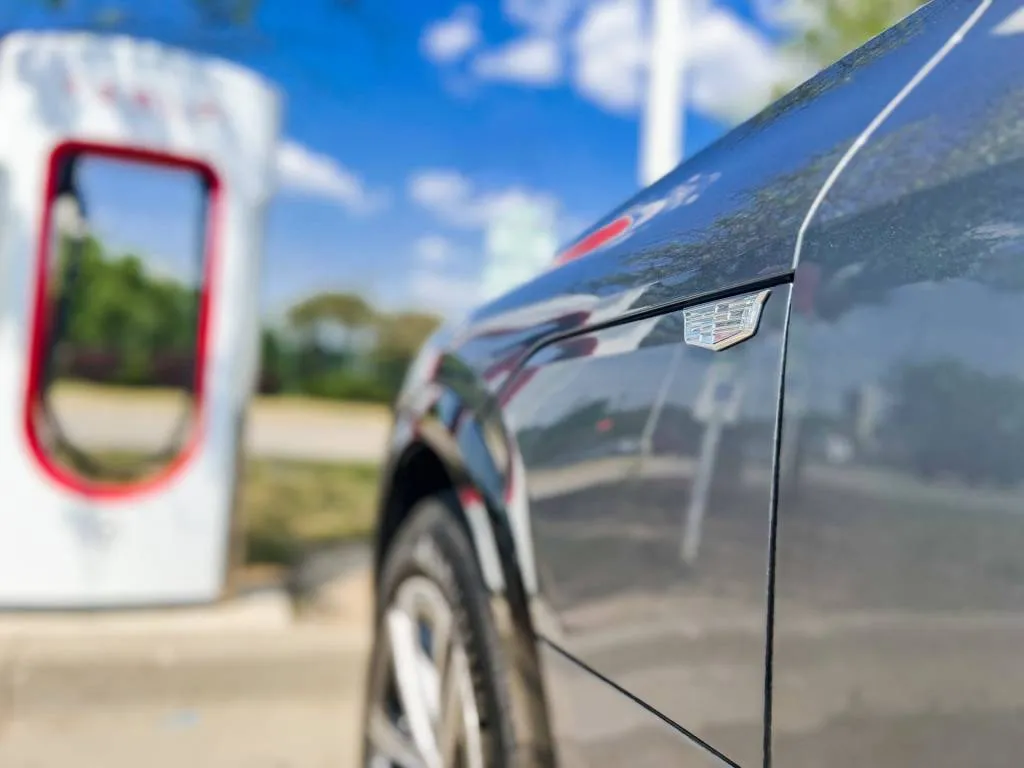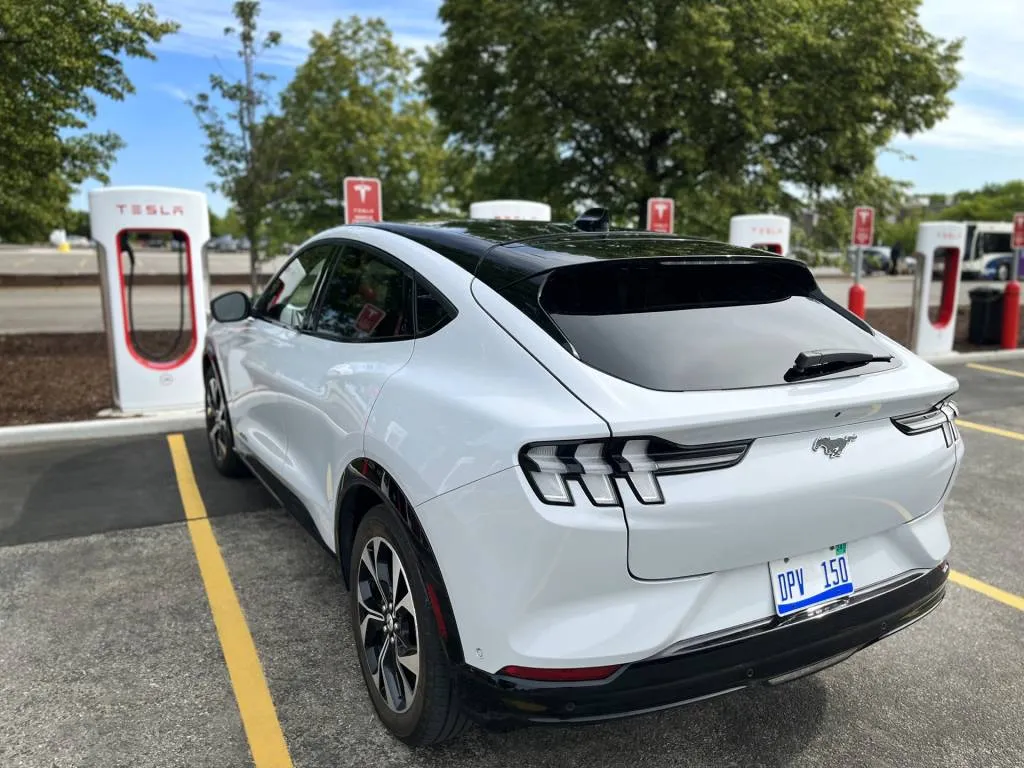Texas officials on Tuesday said EV charging sites looking to tap state funds must include Tesla connectors alongside the Combined Charging Standard (CCS) connector that has been the default up until now.
The decision was made in response to announcements by Ford, General Motors, and Rivian to adopt the Tesla connector, which the automaker has branded as the North American Charging Standard (NACS), the Texas Department of Transportation said in an email to Reuters.
Texas, which is home to Tesla's headquarters and its second U.S. factory, becomes the first state to mandate Tesla connectors for state-funded chargers. States have control of $5 billion of the $7.5 billion in funding set aside in the Biden administration's infrastructure law to create a national network of 500,000 EV chargers. The state funding will be spread over five years, and spending plans must be approved by the federal government.

GM EVs get Tesla Supercharger access in 2024
The feds said earlier this year that Tesla will have to open its network to other EVs in order to be eligible for a piece of the infrastructure-law funding. The White House earlier this month said that it will offer subsidies to charging stations that use Tesla connectors, as long as they include CCS connectors. That statement did not clarify whether CCS adapters would be enough to prove interoperability.
Ford announced last month that it would adopt the Tesla charge port for future EVs. Starting in 2025, next-generation EVs will have the interface built-in, allowing them to charge at Tesla Supercharger stations without an adapter, and Ford will gradually phase out CCS ports in new vehicles. Existing Ford EVs will be granted Supercharger access with an adapter scheduled to become available next year.

Ford Mustang Mach-E at Tesla Supercharger
GM made a similar announcement several weeks later, promising Supercharger access in 2024 for current customers with an adapter, and Tesla charge-port integration on new EVs beginning in 2025. GM also said it has no plans to build vehicles with both CCS and Tesla connectors, indicating CCS will be dropped at some point.
Rivian on Tuesday announced plans to adopt the Tesla charge port as well, but with less detail on the rollout. Hyundai and Stellantis are also considering jumping on the NACS bandwagon.
While the automaker announcements were accompanied by a flurry of statements from charging-hardware manufacturers indicating plans to add Tesla compatibility, CCS connectors are currently available at more locations than Tesla connectors, according to Department of Energy data. In Texas, at least, that may soon change.












